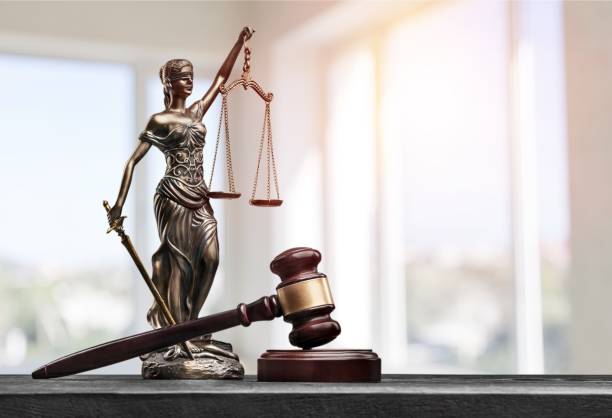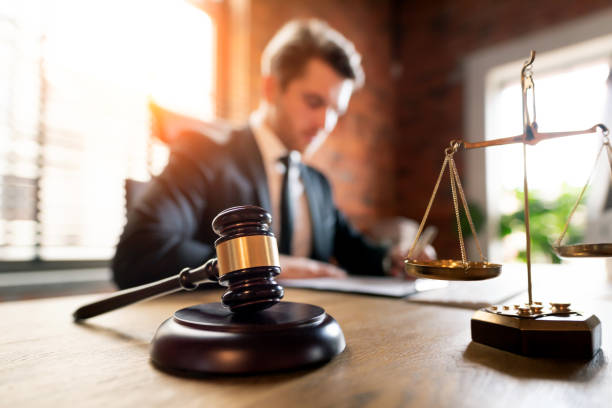Introduction
A criminal lawyer is a legal professional who represents or prosecutes the accused in court. Criminal lawyers are required to have excellent written and oral communication skills, empathy, and analytical and problem-solving skills. They must also possess strong research skills and be able to work under pressure for extended periods of time as well as multi-task effectively.
Criminal Lawyer Duties & Responsibilities
A criminal lawyer is a legal professional who has extensive knowledge of both federal and state laws pertaining to crimes. A criminal lawyer is responsible for ensuring that the accused person is treated fairly and given a fair trial. Criminal lawyers are also responsible for ensuring that the accused person is not convicted of a crime he/she did not commit.
A good criminal attorney will possess excellent research skills, as well as an ability to successfully cross-examine witnesses during trial proceedings. In addition, they must be able to identify weaknesses in the prosecutor’s case so that their client can avoid conviction or receive leniency at the sentencing time if found guilty.
Criminal Lawyer Salary

Criminal Lawyer
Criminal lawyers can earn a good salary. The type of case, location, and employer will all influence the criminal lawyer’s salary.
Education, Training & Certification
Criminal lawyers usually have a law degree and a lawyer license. However, criminal law specialization is not required. Bar admission is required for most states to practice criminal law; however, it does vary by state. Criminal law certification is available through the National Board of Trial Advocacy (NBT), which requires you to pass one or more national exams on criminal trial advocacy skills and knowledge of the federal rules of evidence and civil procedure as they apply to civil cases involving issues related to criminal trials. Criminal law training can come from many sources including studying under other practicing attorneys, attending seminars or lectures hosted by special interest groups, reading books authored by experts in this field, or taking online courses offered through accredited universities or online non-profit organizations like NBT that offer courses specific to those who want additional training beyond what they may have learned while earning their Juris doctorate degree at an accredited university before being admitted into practice as an attorney licensed with their local bar association office
Criminal Lawyer Skills & Competencies
Criminal lawyers must have excellent written and oral communication skills. They must be able to clearly explain the facts of a case in order to convince jurors or judges of their client’s innocence. It is also crucial that criminal lawyers possess empathy, analytical and problem-solving skills, as well as ability to work under pressure in a team or independently. These qualities are needed not only during the trial but also when working with clients during the pre-trial stage. The ability to work in a fast-paced environment is another essential skill for criminal law attorneys due to how quickly cases can move through court systems.
Criminal lawyers are law practitioners who practice in the area of crime.
Criminal lawyers are law practitioners who practice in the area of crime. They represent individuals charged with a criminal offense, or they may be employed by the government to prosecute offenders. These lawyers must have excellent written and oral communication skills, as well as empathy and analytical and problem-solving skills.
A criminal lawyer will defend a person charged with a criminal offense.
The role of a criminal lawyer is to defend a person charged with a criminal offense. This means that the lawyer will represent their client in court, and help them get through their case as smoothly as possible.
It’s important for people who are accused of committing crimes to have legal representation because they are facing serious consequences if found guilty: prison time, fines, and more! However, having an experienced criminal lawyer by your side can make all the difference when it comes to being found innocent or guilty in court.
A good criminal lawyer will look at all aspects of your case and work hard on your behalf so that you don’t have any surprises come trial time! They’ll do everything they can to ensure that no stone goes unturned in defending you so that you’re able to avoid unnecessary charges or penalties imposed by government agencies like Canada Customs & Revenue Agency (CCRA) or CRA).
They can also be employed by the government and state to prosecute those accused of committing criminal acts.
Lawyers can also be employed by the government and state to prosecute those accused of committing criminal acts. The duties of a criminal lawyer encompass both sides of the law, as they represent defendants who are charged with crimes while also working on behalf of their clients in order to ensure that they are defended from prosecution.
In addition to legal representation, criminal attorneys may offer advice on how best to proceed if someone has been arrested for a crime or been charged with one. They can offer guidance about what steps should be taken if you are suspected or have been convicted of a crime; help determine whether an offense is classified as a misdemeanor or felony; explain the potential consequences for breaking laws; and identify possible penalties involved with committing offenses such as theft or assault.
Criminal lawyers are required to have excellent written and oral communication skills, empathy, and analytical and problem-solving skills.
In order to become a criminal lawyer, you need to have excellent written and oral communication skills. You also need to be empathetic as well as have analytical and problem-solving skills.
A criminal lawyer can be engaged to defend a client or to prosecute an offender.
A criminal lawyer may be employed by the government and state to prosecute those accused of committing criminal acts. A criminal lawyer may also be employed by the government and state to defend those accused of committing criminal acts.
Conclusion
At the end of the day, whether you’re defending a client or prosecuting an offender, your job as a criminal lawyer is to ensure that everyone has access to justice. This can be achieved by ensuring that all parties involved in the case are treated fairly and with respect while they wait for their trial date.

